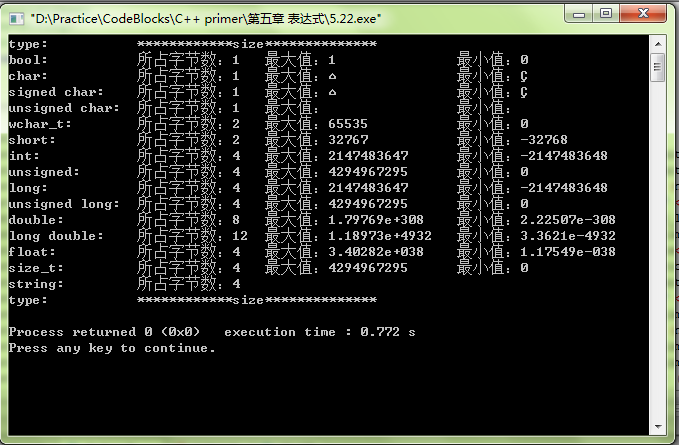题目描述
Alice and Bob are playing a simple game. They line up a row of n identical coins, all with the heads facing down onto the table and the tails upward.
For exactly m times they select any k of the coins and toss them into the air, replacing each of them either heads-up or heads-down with the same possibility. Their purpose is to gain as many coins heads-up as they can.
For exactly m times they select any k of the coins and toss them into the air, replacing each of them either heads-up or heads-down with the same possibility. Their purpose is to gain as many coins heads-up as they can.
输入
The input has several test cases and the first line contains the integer t (1 ≤ t ≤ 1000) which is the total number of cases.
For each case, a line contains three space-separated integers n, m (1 ≤ n, m ≤ 100) and k (1 ≤ k ≤ n).
For each case, a line contains three space-separated integers n, m (1 ≤ n, m ≤ 100) and k (1 ≤ k ≤ n).
输出
For each test case, output the expected number of coins heads-up which you could have at the end under the optimal strategy, as a real number with the precision of 3 digits.
样例输入
6
2 1 1
2 3 1
5 4 3
6 2 3
6 100 1
6 100 2
样例输出
0.500 1.250 3.479 3.000 5.500 5.000
思路:概率dp;状态dp[i][j]表示i次操作后,有j枚硬币正面朝上的概率;初步考虑状态转移方程为:dp[i][j]=sum{r=1~n dp[i-1][r] * [C(k,j-r)/(2^k)]}
但其实不对,首先要分类j>=r和j<r两种情况;
j>=r的时候很好想,根据最优策略(优先选择正面朝下的硬币翻转):
当n-r>=k时,从n-r中任选k个硬币翻转,k个硬币中有(j-r)个硬币正面朝上的概率为C(k,j-r)/2^k,所以此时dp[i][j]+=dp[i-1][r] * [C(k,j-r)/2^k];
当n-r<k时,从n-r中选n-r个,从r中选k-(n-r)个硬币翻转,k个硬币中j-r+k-(n-r)正面朝上的概率为P(计算同上),此时dp[i][j]+=dp[i][r]*P;
j<r时,根据最优策略:
当n-r>=k时,continue;
当n-r<k时,从n-r中选n-r个,从r中选k-(n-r)个硬币翻转,当r-[k-(n-r)]>j时,continue;否则,k个硬币中要有j-{r-[k-(n-r)]}个硬币正面朝上,
AC代码:
#include <iostream> #include<cstdio> #include<cstring> using namespace std; double f[110]; double dp[110][110]; double pow[110]; double c[110][110]; void init(){ pow[0]=1;c[0][0]=1; for(int i=1;i<=100;i++) { pow[i]=pow[i-1]*1.0/2.0; c[i][0]=1;for(int j=1;j<=i;j++) c[i][j]=c[i-1][j-1]+c[i-1][j]; } } int main() { init(); int t;scanf("%d",&t); while(t--){ int n,m,k;scanf("%d%d%d",&n,&m,&k); memset(dp,0,sizeof(dp)); dp[0][0]=1; for(int i=1;i<=m;i++){ for(int j=0;j<=n;j++){ for(int r=0;r<=n;r++){ if(j>=r){ if(n-r>=k) { dp[i][j]+=(dp[i-1][r]*c[k][j-r]*1.0*(pow[k]*1.0)); } else dp[i][j]+=(dp[i-1][r]*c[k][j-r+(k-(n-r))]*1.0*(pow[k]*1.0)); } else{ if(n-r>=k) continue; else{ if(r-(k-(n-r))>j) continue; else dp[i][j]+=(dp[i-1][r]*c[k][j-(r-(k-(n-r)))]*1.0*(pow[k]*1.0)); } } } } } double ans=0; for(int i=0;i<=n;i++) ans+=i*dp[m][i]; printf("%.3f ",ans); } return 0; }
